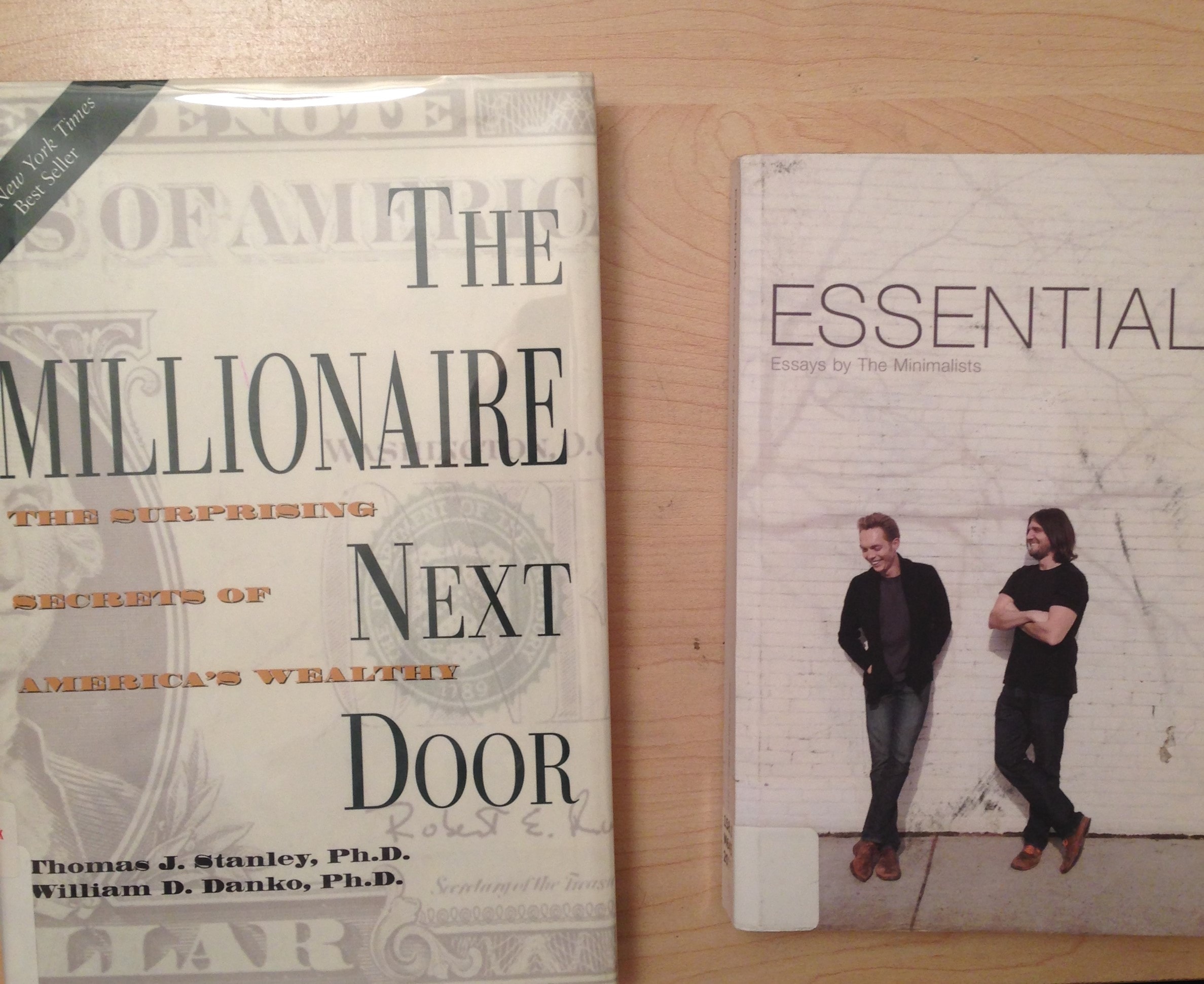
In my early years of college I became highly interested in money. I used to sit at the Barnes & Noble near my house and work my way down the Business & Finance section, reading any book that contained tips on accumulating wealth.
I learned about the success of Warren Buffett, Peter Lynch, and Jeremy Siegel in the stock market and how they became incredibly wealthy. I proceeded to open a TD Ameritrade brokerage account and fund it with $1,000 I had in savings.
First I bought stock in XPO Logistics, then promptly sold a few months later, only to buy Visa, Hershey, and Disney, holding each for a few months and selling after they rose a few dollars. Between the trading fees and my lack of patience I turned my initial $1,000 into about $1,100.
These early experiences in the stock market taught me a valuable lesson, which I have gone on to write about in several blog posts: For young people, income matters so much more than investment returns.
Instead of watching candlestick charts of the stocks I owned in class, I should have been out applying for internships. I should have been looking for ways to make more money, not obsessing over investing the tiny amount of money I already had.
Related:
I Want to be an Income Machine, Not an Investment Guru
Here’s How Much Investing Returns Matter Based On Your Portfolio Size
Over the past few years I have figured out how to increase my income and consequently my net worth. I snagged an internship as a data analyst during my senior year of college, then took on a full time analyst position as I completed my one year Master’s program. Most recently this summer I made the leap to a new company to increase my annual salary to $80,000.
Along the way I have also had success in side hustles with statistics tutoring, blogging, and acquiring dividend-paying stocks. All of this effort has led to a substantial increase in my income. But the most important financial revelation I have ever had is that retained income is all that matters. Who cares if I make $80k per year? What truly matters is how much of it I keep. I learned that the best way to keep more of my income was to practice a simple idea called minimalism.
Enter: Minimalism
The first major “life hack” I felt I discovered was the concept of early retirement. When I learned that it was possible to work for ten years or less and have enough money to never work again, I felt like I had been exposed to the world’s best kept secret.
Then came along The Minimalists. Their philosophy of “living with less” was captivating. I read about Joshua’s minimalist apartment, watched their Ted Talk, and voraciously consumed their podcast episodes.
I became a frequent reader of Zen Habits, Becoming Minimalist, Colin Wright at Exile Lifestyle, and Greg Mckeown. The more I read, the more crap I got rid of, and the more I began to see that I didn’t need much stuff at all to be happy. Minimalism was simultaneously putting more money in my pockets and removing stress from my life.
Two is Stronger than One
It wasn’t until this past year that I realized my obsessions with personal finance and minimalism were both pushing me towards a common goal:
Freedom.
Through reading books on finance, investing, and hustling, I have been able to increase my income.
Through reading books on minimalism, simple living, and essentialism I have been able to reduce my spending drastically. Instead of using my increased income to upgrade my car, buy a house, or build up my shoe collection, I’m practicing the subtle art of being content with less. This allows me to save a ridiculously high portion of my income.
I think most people on the path to financial independence (or any financial goal) could benefit in a major way from simultaneously choosing to increase income and practice minimalism.
There are plenty of personal finance aficionados out there who are amazing at saving every last dollar. But their financial circumstances would improve even more if they learned how to earn more.
There are plenty of high-income earners across the U.S. who are great at making money. But their financial situation would also improve dramatically if they started practicing the art of owning less.
I recently tweeted out my thoughts on this:

By embracing a high-income mentality and minimalism, it’s possible to save an insane amount of money in a short period of time. By embracing the art of duality, it’s possible to turbo-charge the path to financial freedom.
This morning I snapped a picture of two books sitting on my desk, both of which have had an astoundingly positive impact on my financial life:

Simply reading one of these books will add value to your life. But combining the ideas from both will have an even stronger impact.
Embrace Duality
If you’re on the road to financial independence, I bet you have a unique superpower. You might be really good at saving. Or you may have mastered the art of the high-income profession. Or maybe you’re an impressive side-hustler. Or perhaps you have a natural ability to practice frugal-living effectively.
No matter what your financial superpower may be, you can benefit from practicing duality. Emphasize both earning more and spending less. Look for ways to increase income while simultaneously learning to be content with less. This is how to start sprinting towards financial independence at an incredible pace.
- The Ad Revenue Grid - August 6, 2021
- Attract Money by Creating Value for a Specific Audience - July 13, 2021
- The 5-Hour Workday - March 26, 2021
Full Disclosure: Nothing on this site should ever be considered to be advice, research or an invitation to buy or sell any securities, please see my Terms & Conditions page for a full disclaimer.

I personally don’t live a minimalist lifestyle, but I know many people live successfully under the model. I think the key really is to maximize the hell out of your earnings and live small, in whatever way that means for you.
I think the most important thing to focus on is making sure that whatever you do own is bringing you value. It’s possible to own a lot of stuff and not look like a “minimalist” but if you truly gain value out of your belongings, that’s all that matters. I just think that for most people, they would be surprised at how little they actually need to own to maximize happiness.
We definitely focused on maximizing earnings and minimizing lifestyle inflation. My income tripled over ten years after my MBA and my wife was even better. This has enabled us to save a lot of money. The other key to our saving, is automatically putting our bonus’s in investment accounts. This saved us from splurging on things because “we deserve it.”
However, incomes higher than lets say $200k come with lots of stress. We’ve definitely felt the time demands and reached a turning point!
Automatically placing bonuses in investment accounts is a fantastic habit to cultivate. It prevents lifestyle inflation with minimal effort. Congrats on successfully tripling your income in a relatively short period of time – a high income makes saving that much easier 🙂
Another great post – your writing is really refreshing, even for a reader who is a decade older and farther along the FIRE line. Last year we had a wake-up call when we realized our annual taxes due were more than our annual spending – our accountant was shocked that anyone would have a savings rate of 70%+! Yes, minimalism is a wonderful life philosophy and it has allowed us to reduce from the stress of two six-figure earners to only one (accompanying parenthood) and maximize happiness while still being able to save for early retirement.
I appreciate the kind words, Kim 🙂 And congrats on such an incredible savings rate. It’s such a nice surprise to realize how easy saving can be once you realize you just don’t need to buy much stuff to maximize happiness. Best of luck on your financial journey with your family 🙂
Power of duality – I LIKE it! I’m taking infant steps to this minimalism concept with little milestones. For example, I refuse to buy any more clothing for the rest of the year; let’s see how it goes 🙂
I like your tweet and will re tweet it; powerful words.
I’m right there with you on the no-clothing spending. It took me a while to figure out that I actually don’t like shopping and I already have more clothes than I wear…cheers to waking up and seeing what spending makes sense for you 🙂
I was always pretty frugal at home even though I was a high earner and a fast mover in my industry. My expense account ran about $40k per year when I was working and I didn’t mind at all getting new and expensive smart phones and PC’s whenever I wanted one and when I traveled, which was often I stayed in nice hotels and ate quite well. They even gave me a new car and free gas. All of that and more was perfectly legal and paid for with OPM (other people’s money). The norm for expense accounts was set by the “normal” people in the company and therefore was extravagant to the same degree that they overspent in their personal lives. While my expenses were on the low side I felt no pressure to conform my work expenses to my frugal home expenses. How do minimalists see spending when you are spending OPM? To me it was a perk, like a free all you can eat buffet as long as my behavior was within the normal range, which of course felt crazily excessive to me.
Spending OPM definitely comes with the temptation to overspend, but it’s definitely a perk. You bring up a great point that the “normal” range of spending when using OPM is typically much higher than average for a frugal person.
Thanks for always sharing your money stories, Steveark 🙂
Great post Zach and that’s something what my husband and I are trying to practice. Like you said, sometimes it’s not a function of how much you earn, but it’s more of how much you save. By practicing minimalism, it increases the bandwidth that you can save and helps to achieve financial independence earlier.
Couldn’t agree more, Kate. For most people who earn a high-income, they have a tendency to inflate their lifestyle and spend more. But it’s the people who can embrace simple living who can save a ridiculous amount of their income and gain financial freedom. It’s not a flashy approach but it works. Thanks for the feedback and best of luck to you and your husband on your financial journey 🙂
Love this approach – I think a high income and minimalise work perfectly together, and are the recipe to reach financial independence quickly.